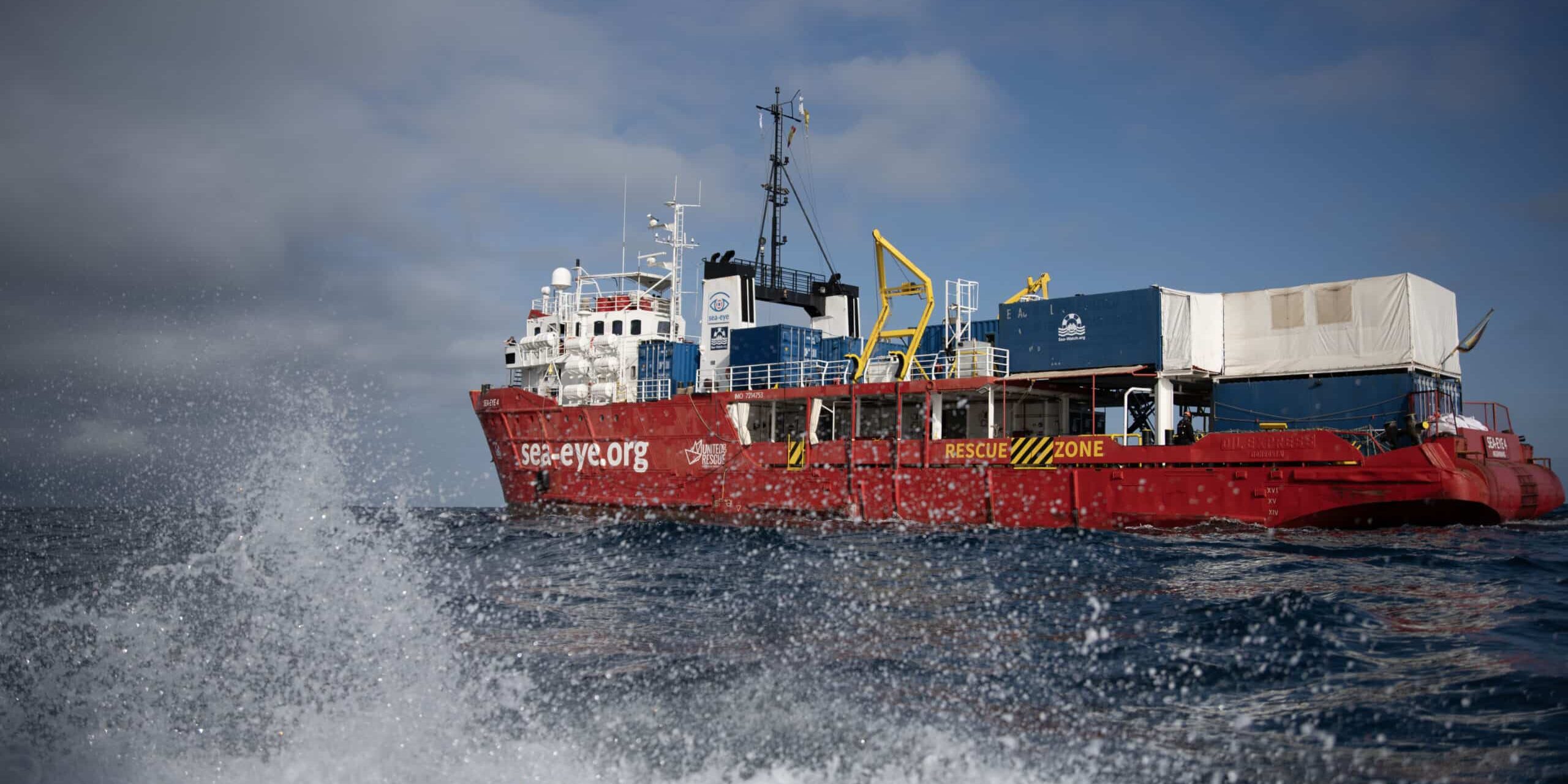The sea rescue organizations Sea-Eye and Sea-Watch have launched a joint rescue operation in the central Mediterranean. With the rescue ship Sea-Eye 4, a crew of 28 members of both organizations is on its way to one of the deadliest borders in the world. One week before the German parliamentary elections, the two German organizations call on all parties to create safe and legal passages.
The cooperation between Sea-Eye and Sea-Watch is a response to the ongoing deaths in the Mediterranean. Despite political resistance in Germany, the organizations remain true to their mission: to save lives and to draw attention to the systematic omission of state rescue operations. The joint mission is not only a reaction to the acute dying, but also a sign of solidarity. European civil society cannot stand by and watch people drown.
“The collaboration between Sea-Eye and Sea-Watch is a strong signal of cohesion and solidarity. In times of exclusion, hatred and agitation, we are fighting together for every human life on one of the deadliest escape routes in the world. We are showing that humanitarian aid knows no borders,” explains Gorden Isler, chairman of Sea-Eye.
Sea-Watch also emphasizes that the cooperation is a necessary step: “Every cooperation strengthens our commitment to save people from drowning. One week before the German parliamentary elections, we demand safe and legal passages for all. Politicians who only shout for fences do not change anything about the dying in the Mediterranean,” says Giulia Messmer, spokesperson for Sea-Watch.
The Sea-Eye 4 is a ship specially converted for rescue operations that has already saved over 3,800 people from drowning. The current operation will bring those seeking protection safely to land and provide initial medical care. The crew consists of experienced sea rescuers, doctors and technical specialists.
The operation is supported by the broad alliance United4Rescue and the initiative LeaveNoOneBehind.
Despite international obligations to rescue people at sea, civil sea rescue is increasingly being obstructed by European states. Over 2,300 people have drowned in the Mediterranean in 2024 alone. The organizations call on the European Union and its member states to end their blockade and create legal and safe passages.











